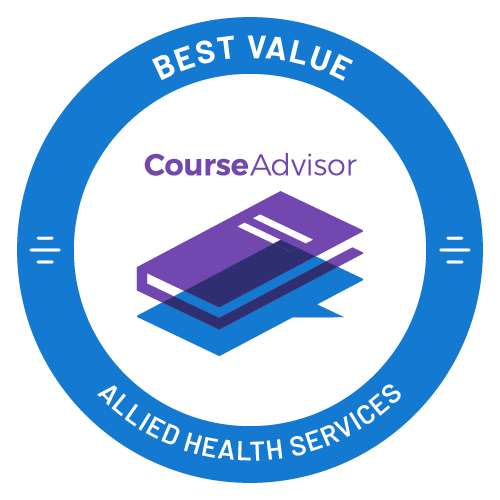2023 Best Value Allied Health Services Associate Degree Schools in Vermont
Highlighting Quality Schools With More Affordable Pricing
Finding the Best Allied Health & Medical Assisting Services Associate Degree School for You
Allied Health & Medical Assisting Services is the #118 most popular major in Vermont with 14 degrees and certificates awarded in 2020-2021.
Today's students have lots of options to pick from when considering higher education opportunities. You can choose a traditional brick and mortar school, or with the growth of online education, you can attend a school half-way across the country without even leaving your house. Also there are many trade schools that offer short-term programs that open up more career options.
To assist you in seeing some of the education options that are available to you, Course Advisor has created its Best Value Allied Health Services Associate Degree Schools in Vermont ranking. Our analysis looked at 2 schools in Vermont to see which associate degree programs offered the best value experiences for medical assisting students with the aim of identifying those quality schools that are more affordable than some of their counterparts.
When determining this ranking, we place a high emphasis on the school's quality as well as its sticker price. Even though a college may be affordable, it may not offer value. Specifically, our score for quality is discounted by the published tuition and fees charged by the given college. This gives the cost per unit of quality for each college. The more quality your dollar buys, the better the value.
Our calculations use out-of-state tuition and fees in our nationwide and regional rankings. For statewide rankings, we use average in-state tuition and fees.
Best Vermont Schools for Affordable Quality for an Associate in Allied Health Services
Our analysis found Community College of Vermont to be the best value school for allied health and medical assisting services students who want to pursue a associate degree in Vermont. CCV is a moderately-sized public school located in the rural area of Montpelier.
CCV undergraduate students pay an average of $6,920 in in-state tuition and fees each year. The average amount in student loans that medical assisting majors at CCV take out while working on their Associate Degree is $16,662.
CCV also made our Best Allied Health Services Associate Degree Schools in Vermont list, coming in at #1.
Full Allied Health & Medical Assisting Services at Community College of Vermont Report
Request Information
You’ll be in good company if you decide to attend Vermont Technical College. It ranked #2 on our 2023 Best Value Allied Health Services Associate Degree Schools in Vermont list. Located in the rural area of Randolph, Vermont Tech is a public school with a small student population.
The average tuition and fees for an in-state undergraduate at Vermont Tech are $16,082 a year. After completing their Associate Degree, medical assisting graduates from Vermont Tech carry an average student debtload of $17,848.
Vermont Tech also made our Best Allied Health Services Associate Degree Schools in Vermont list, coming in at #3.
Full Allied Health & Medical Assisting Services at Vermont Technical College Report
Request InformationBest Value Allied Health & Medical Assisting Services Colleges in the New England Region
Explore all the Best Value Allied Health & Medical Assisting Services Colleges in the New England Area or other specific states within that region.
| State | Degrees Awarded |
|---|---|
| Massachusetts | 202 |
| Connecticut | 390 |
| New Hampshire | 39 |
| Maine | 118 |
| Rhode Island | 96 |
More Allied Health & Medical Assisting Services Rankings in Vermont
Allied Health & Medical Assisting Services Related Majors for Medical Assisting
Allied Health & Medical Assisting Services is one of 30 different types of programs to choose from.
Most Popular Related Majors
| Related Major | Annual Graduates |
|---|---|
| Nursing | 322,592 |
| Health & Medical Administrative Services | 89,359 |
| Practical Nursing & Nursing Assistants | 84,274 |
| Allied Health Professions | 82,308 |
| Public Health | 40,596 |
Notes and References
*These averages are for the top 2 schools only.
- The Integrated Postsecondary Education Data System (IPEDS) from the National Center for Education Statistics (NCES), a branch of the U.S. Department of Education (DOE) serves as the core of the rest of our data about colleges.
- Some other college data, including much of the graduate earnings data, comes from the U.S. Department of Education’s (College Scorecard).
More about our data sources and methodologies.



